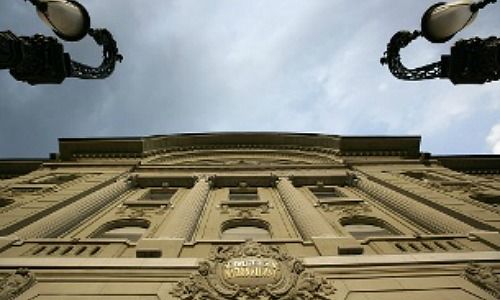The Swiss economy will grow faster in 2016 than in 2015, led by exports and consumption, UBS said in its latest economic forecast.
UBS expects the Swiss economy to expand 1.4 percent this year and 1.8 percent next, after 1 percent in 2015, the company said in a statement today.
The economists at Switzerland's biggest bank expect the Swiss National Bank (SNB) to keep interest rates at the current negative level this year. Should however the Swiss currency rise above 1.05 versus the euro, the hands of the bank's governors would be forced and rates lowered even further. One euro is currently worth about 1.10 Swiss francs.
Exports to Recover
«The negative rates have already had unwanted side effects on the Swiss finance and pension system, and UBS thinks that the SNB will leave them at their current -0.75%, raising them as soon as circumstances permit,» UBS said.
In doing away with its peg to the euro and the subsequent surge of the franc, the SNB twelve months ago put a strain on Swiss exporters, who struggle to remain competitive in a country with high prices and wages. As a consequence, export growth last year narrowed to 1.1 percent from 4.1 percent in 2014. This year, the UBS economists project the figure to accelerate to 1.8 percent, followed by 3.5 percent in 2017.
Swiss exporters had to cut their prices following the surprising lifting of the peg to the euro last year and suffered a decline in profitability. With the squeeze on profit margins, companies are likely to reduce their investments in equipment. UBS expects these investments to barely budge in 2016, after a still healthy increase of 2.3 percent in 2015.
Unproblematic Deflation
Imports are likely to rise 1.8 percent in 2016 and 2.6 percent in 2017, following on last year's 1.3 percent increase. Inflation, during a long time the most important factor influencing the central bank's monetary policy, remains unproblematic, according to UBS. Prices will fall an average 0.4 percent this year, which compares with last year's 1.1 percent drop.
«Despite the slight deflation, the risk of a deflation spiral appears to be low in Switzerland, as the rate mainly reflects the adjustment of the economy to sudden exchange rate dislocations and plummeting oil prices,» UBS said in its report.
Private consumption is likely to increase by 1.4 percent this year, after 1.2 percent last, while the corresponding figure for the public sector is 1 percent, compared with 2.2 percent.






























